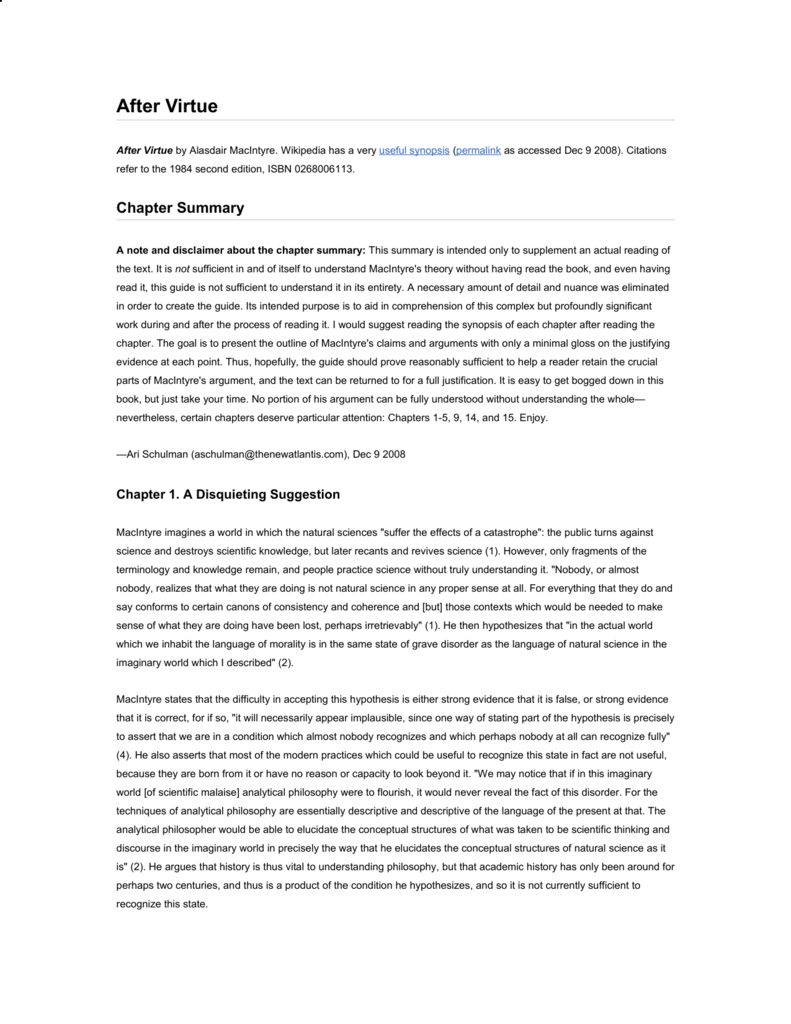

Benedict - Postscript to the second edition In a new chapter, MacIntyre elaborates his position on the relationship of philosophy to history, the virtues and the issue of relativism, and the relationship of moral philosophy to theologyĪ disquieting suggestion - The nature of moral disagreement today and the claims of emotivism - Emotivism: social content and social context - The predecessor culture and the enlightenment project of justifying morality - Why the enlightenment project of justifying morality had to fail - Some consequences of the failure of the enlightenment project - "Fact", explanation and expertise - The character of generalizations in social science and their lack of predictive power - Nietzsche or Aristotle? - The virtues in heroic societies - The virtues at Athens - Aristotle's account of the virtues - Medieval aspects and occasions - The nature of the virtues - The virtues, the unity of a human life and the concept of a tradition - From the virtues to virtue and after virtue - Justice as a virtue: changing conceptions - After virtue: Nietzsche or Aristotle, Trotsky and St. Postscript \ Bibliography \ Index.Discusses the nature of moral disagreement, Nietzsche, Aristotle, heroic societies, and the virtue of justice. After Virtue: Nietzsche or Aristotle, Trotsky and St Benedict \ 19. Justice as a Virtue: Changing Conceptions \ 18. From the Virtues to Virtue and After Virtue \ 17. The Virtues, The Unity of a Human Life and the Concept of a Tradition \ 16. The Character of Generalizations in Social Science and their Lack of Predictive Power \ 9.

Some Consequences of the Failure of the Enlightenment Project \ 7. Why the Enlightenment Project of Justifying Morality Had to Fail \ 6. The Predecessor Culture and the Enlightenment Project of Justifying Morality \ 5. Emotivism: Social Content and Social Context \ 4. The Nature of Moral Agreement Today and the Claims of Emotivism \ 3. Prologue to the Third Edition \ Preface \ 1.


 0 kommentar(er)
0 kommentar(er)
